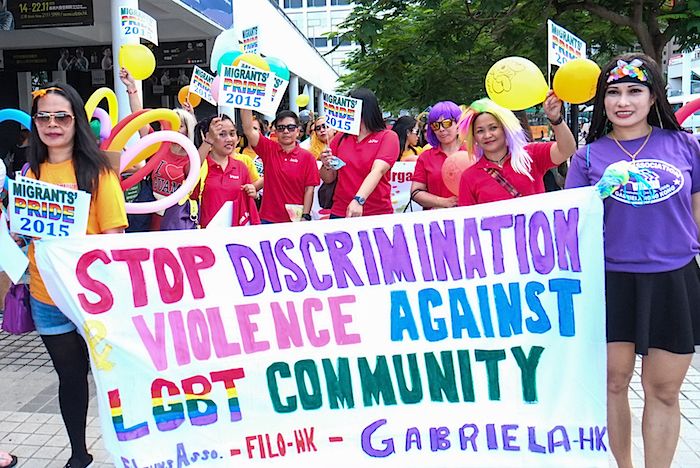The Equal Opportunities Commission (EOC) released today the results of a study assessing discrimination experienced by lesbian, gay, bisexual, transgender and intersex individuals in Hong Kong, and public opinion on whether legislation preventing such discrimination is necessary.
The study results show that discrimination against LGBTI people is commonplace in Hong Kong; however, the EOC reports that public opinion has “visibly shifted” in favour anti-discrimination legislation.
A whopping 91.8 percent of 18-24-year-olds interviewed considered legislation protecting LGBTI people from discrimination necessary, while over half (55.7 percent) of all people surveyed over the telephone agreed – nearly double of the corresponding figure (28.7 percent) reported in 2005. According to the results, nearly half (48.9 percent) of those surveyed who held religious beliefs agreed that protective legislation is needed.
Speaking at a press conference today, Dr. York Chow, Chairperson of the EOC, said the study was “the most comprehensive of its kind in Hong Kong”, as it examined both the discrimination experienced in Hong Kong by LGBTI individuals, as well as public opinion on how to combat such discrimination through “both qualitative and quantitative approaches”.
Chow added that the study could be a useful reference and serve as an “evidence-based foundation” for the government and related parties when advancing equality and considering legislation.
The Study on Legislation against Discrimination on the Grounds of Sexual Orientation, Gender Identity (SOGI) and Intersex Status was conducted by the Gender Research Centre of the Hong Kong Institute of Asia-Pacific Studies at the Chinese University of Hong Kong (CUHK).
The study was reportedly conducted via a territory-wide telephone public opinion survey (with 1,005 respondents), three public forums, 13 public focus groups (including those with strong concerns), interviews with members of the LGBTI community, as well as online and postal opinion submissions.
LGBTI respondents noted that they experienced discrimination based on their sexual orientation, gender identity, or intersex status frequently in areas of employment, education, provision of services, disposal and management of premises, and government functions. Those surveyed responded that they felt they had little to no means of rectifying the situation, and a number of respondents said they viewed protective legislation as the necessary first step towards protecting their basic human rights and dignity.
The survey’s Principal Investigator and Assistant Professor of Sociology at CUHK, Professor Suen Yiu-tung, said “In general, all the subgroups of LGBTI people faced discrimination. They included the lower-income groups such as foreign domestic helpers, as well as higher-income earners such as those working in the finance or entertainment industries. […] Many LGBTI people indicated that the […] perpetrators in the discriminatory situations were higher up in the power hierarchy than themselves, such as their employers, senior administrators or teachers, rendering means of redressing discrimination either not useful or virtually non-existent.”
Suen also noted that, in some extreme cases, within the context of education, teachers, counsellors and social workers were perceived to be perpetrators of LGBTI discrimination.
“Discriminatory treatment on the basis of SOGI and intersex status has no place in an internaiton city and business centre such as Hong Kong. Such discrimination harms LGBTI individuals physically, emotionally, and financially. They also hurt the city’s ability to attract and retain talent, as well as our longstanding reputation as an open and welcoming society,” Dr Chow said.
Suen agreed, saying “Based on the research findings, the discussion needs to move from the question of whether or not there should be legislation on the grounds of sexual orientation, gender identity and intersex status to that of how such legislation should be designed.”
Got a tip? Send it to us at hongkong@coconuts.co



